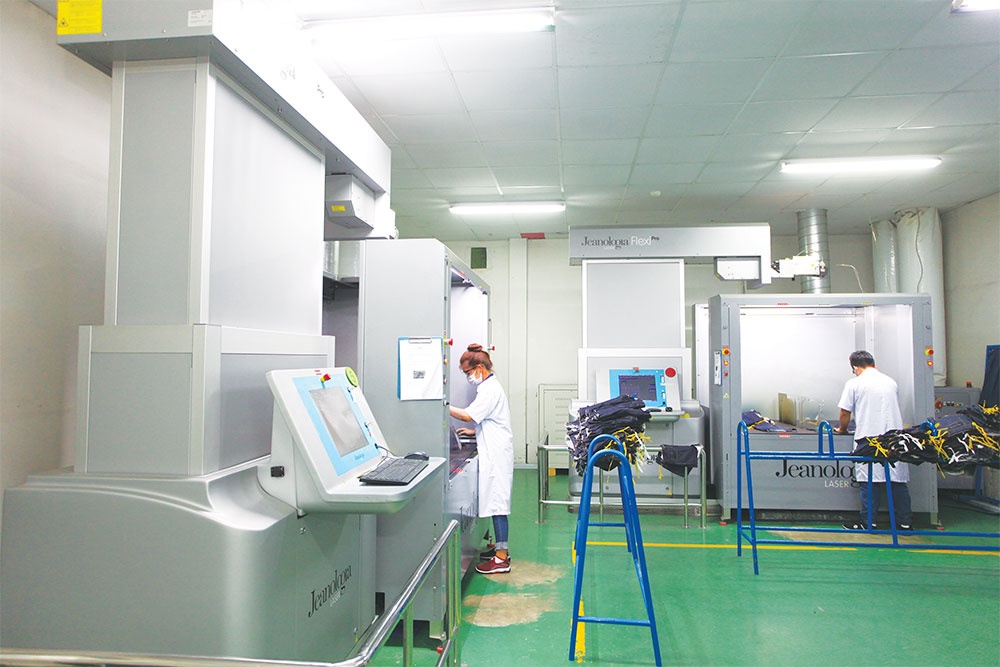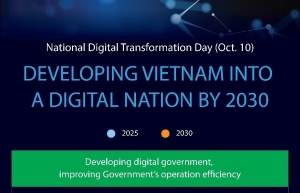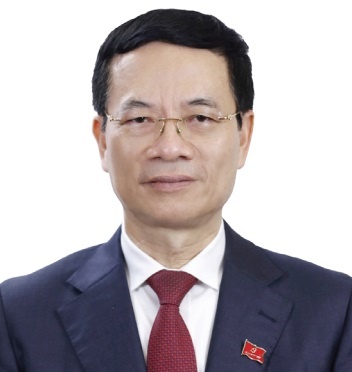Fostering national digital transformation
Shah Zeb, senior director of Business Development at Qualcomm Technologies, last week flew from the US to Vietnam to attend the Vietnam International Digital Week from October 11-14 in Hanoi, demonstrating Qualcomm’s interest in the local tech market amid the country’s acceleration to commercialise 5G.
“Vietnam has three big goals: successfully deploying the 5G network; designing products for domestic and international markets; and developing digital skills and capacity,” he said.
5G is a critical driver in Vietnam’s digital transformation journey. The country is expected to launch 5G commercialisation next year. Amazon Web Services (AWS), Qualcomm, Ericsson, Lenovo, Keysight Technologies, and Huawei are all expanding to reap the benefits.
 |
| Fostering national digital transformation, Photo Le Toan |
Vietnam and Qualcomm have agreed to intensify cooperation in developing and commercialising products, especially 5G devices, to meet local and international needs. Qualcomm is working with Vietnamese network operators such as Viettel, VNPT, Mobifone, BKAV, and Vinfast in 5G activities.
Ericsson is working with the Vietnamese government and operators to accelerate the 5G rollout. The company has deployed on Viettel’s network, achieving download speeds of 4.7Gb/s – a record. Currently, mmWave is being deployed in many regions in Vietnam, showing promising results such as 1Gb/s, which signals strong progress.
Recent months have seen Hanoi visited by leaders of global tech giants. In mid-September, Phil Davis, managing director for Asia-Pacific and Japan at AWS, landed in Vietnam to meet customers and partners. He said he found a strong acceleration in Vietnam’s digital transformation across sectors compared to his previous visits.
AWS has increased investment in infrastructure in Vietnam in recent months, including regional and local zones, and is planning to do more work on infrastructure and training in the future
ICT cooperation and interest have also intensified at the country level as meetings with Japan, South Korea, and the United States.
At the Vietnam-Japan Digital Forum held on October 12, Vietnam’s Ministry of Information and Communications (MIC) and its Japanese counterparts discussed digital transformation and 5G rollout in the two countries. Representatives from Japanese ICT firms like Hitachi, Fujitsu, and NTT Data also shared their plans to work with partners in Vietnam. In September, the MIC also held similar events in South Korea and the United States.
Vietnam’s digital transformation has been accelerating since 2020 when the prime minister approved the National Digital Transformation Programme towards 2025, aiming to be in the top 50 countries in e-government development.
In recent years, several actions have been taken by the government, ministries, agencies, and the business community to contribute. As of mid-2022, breakthroughs were recorded in the digital economy, with its added value making up about 10.5 per cent of Vietnam’s GDP, according to the MIC.
Nearly all enterprises use e-invoices, e-commerce revenue reached 11.27 per cent of total retail sales, and 66 per cent of adults have payment accounts. Over 70 per cent own smartphones, and 71.75 per cent of all households use broadband cable internet.
Despite these achievements, shortcomings remain. “Vietnam has yet to possess adequate human resources to achieve its goals,” said Zeb of Qualcomm. “For the country to be ready for 5G, there should be 5G spectrum options such as mid-band and mmWave in place, combining them in strategic locations, as well as choosing suitable options for population density and traffic. The underlying infrastructure is critically important.”
Bui Kim Thuy, senior representative of the US-ASEAN Business Council in Vietnam, said that the digital economy is a dynamic market, and Vietnam now has a bustling digital economy development, in addition to a golden aged population.
“The internet in Vietnam and ASEAN has the fastest development rate. US investment in ASEAN reached nearly $340 billion, much more than in China, Japan, South Korea, and India and is expected to increase in the future. To this end, Vietnam’s policies should be stable and predictable,” she noted.
Davis of AWS added that there was also a skill shortfall in many areas, including Vietnam. “I was in India three weeks ago, and one of the top concerns of every CEO I met was the right skills. They have a lot of the old skills and not enough of the new.”
To further accelerate digital transformation, the country is focusing on completing the legal framework and policies about digital to develop a legal framework, digital infrastructure, digital platforms, and human resources while taking measures to improve its performance and rankings in e-government, global innovation, and global competitiveness in line with international standards.
The country will increase the rate of dealing with online administrative procedures and improving the quality of online public services while creating solutions to develop and better the quality of digital human resources associated with innovation and science and technology.
Encouraging enterprises to accelerate the digitalisation of production and business activities and establishing effective digital service delivery channels, the country will also enhance investment in digital infrastructure, research and development, and international cooperation in digital transformation.
| Pham Minh - Chinh Prime Minister
National Digital Transformation Day 2022 (October 10) is a significant event for the country. Held for the first time, it shows the determination of the Party and the state, the political system, the business community and the people in accelerating to develop a digital society, economy, and citizens. Together with green transformation, digital transformation is an inevitable trend happening everywhere very deeply. It contributes to the strength of the nation, helping effectively address the relations between the state, the market, and society. It will help implement strategic breakthroughs in infrastructure institutions and human resources; promote economic growth; increase labour productivity and business efficiency; reduce administrative procedures to save time and costs; and help the state at all levels increase management capacity and operational efficiency. The National Digital Transformation Programme for 2025 will be implemented comprehensively with the involvement of the people, businesses, and state agencies. The government’s point of view is to put people and businesses at the centre as the target and driving force of digital transformation. Our achievements so far are just the initial results. We have a lot of work ahead. We must have a methodical strategy, implement with focus, and create a change in the mode of management, operation, and administration across society. Nguyen Manh Hung - Minister of Information and Communications
Digital transformation is firstly a change in mindset and a long journey involving all people. Thus, it can only be successful if people are at the centre of it. National Digital Transformation Day is an occasion to increase people’s awareness about the significance, role, and importance of digital transformation both in daily life and in national, social, cultural, and economic development. This is a day when we must all act together and make more efforts. Digital transformation means action. The key task of 2022 is to bring people’s activities in the digital environment onto digital platforms in Vietnam. The Ministry of Information and Communications has directed the development, assessment, and announcement of 16 groups of digital platforms to serve people’s needs. Moreover, a network of community digital technology teams has been established across the country. More than 100,000 staff in state agencies from the central level to the grassroots level have received training on digital transformation. Over five million people can access basic digital skills through online learning platforms. Digital transformation is a new mode of development and a new way to solve our problems. We face problems in the real world, such as exhausting natural resources and a development gap between urban and rural areas. A human’s brain no longer has enough room to store all human knowledge. We are creating a new living space – the digital space – where the problems of the analogue world will be solved; and there will no longer be a gap between rural and urban areas in accessing healthcare and education. High technology will be provided as a service at a very cheap price, like electricity and water, so that anyone can access it. A total of 100 million Vietnamese people are undergoing digital transformation, which is a great strength of Vietnam. |
 | Vietnam accelerates digital transformation process Vietnam is making efforts to boost digitalisation with a view to becoming a digital nation by 2030. |
 | Data deemed safer in law alteration Foreign enterprises doing business in Vietnam must store key internet data on servers located within the country, according to a new government decree. |
What the stars mean:
★ Poor ★ ★ Promising ★★★ Good ★★★★ Very good ★★★★★ Exceptional
Related Contents
Latest News
More News
- Ho Chi Minh City launches plan for innovation and digital transformation (February 25, 2026 | 09:00)
- Vietnam sets ambitious dairy growth targets (February 24, 2026 | 18:00)
- Masan Consumer names new deputy CEO to drive foods and beverages growth (February 23, 2026 | 20:52)
- Myriad risks ahead, but ones Vietnam can confront (February 20, 2026 | 15:02)
- Vietnam making the leap into AI and semiconductors (February 20, 2026 | 09:37)
- Funding must be activated for semiconductor success (February 20, 2026 | 09:20)
- Resilience as new benchmark for smarter infrastructure (February 19, 2026 | 20:35)
- A golden time to shine within ASEAN (February 19, 2026 | 20:22)
- Vietnam’s pivotal year for advancing sustainability (February 19, 2026 | 08:44)
- Strengthening the core role of industry and trade (February 19, 2026 | 08:35)



 Tag:
Tag:

















 Mobile Version
Mobile Version